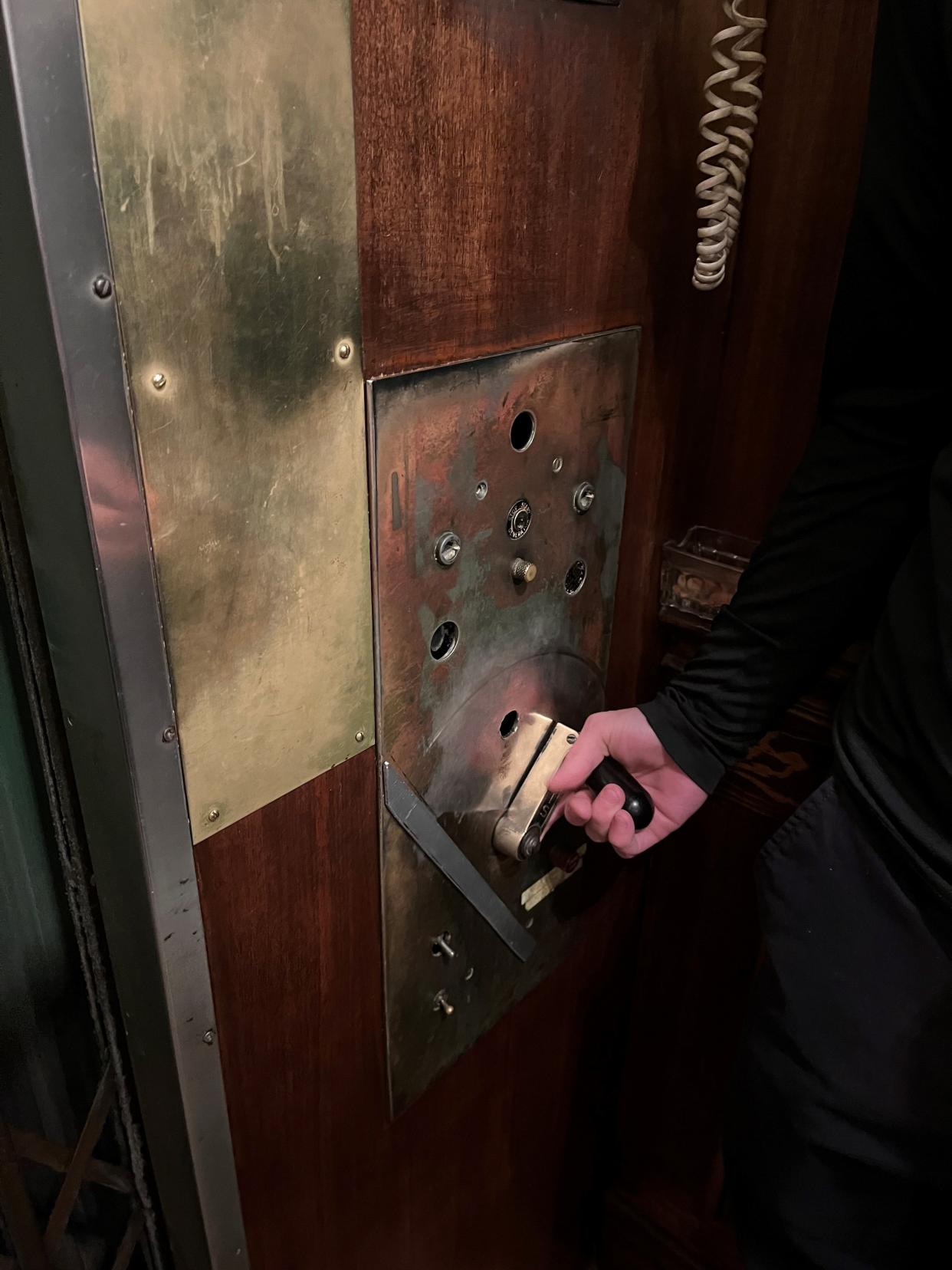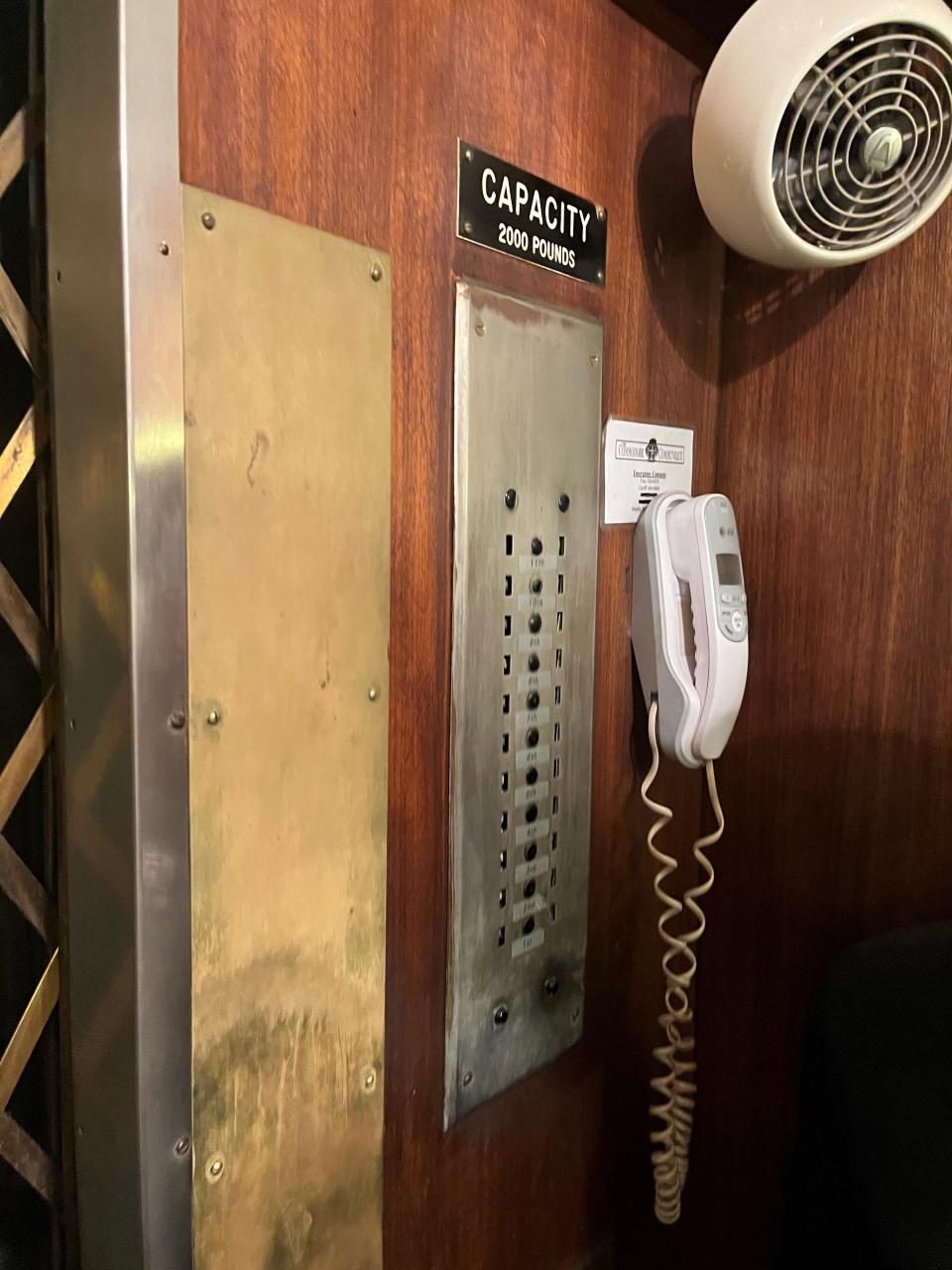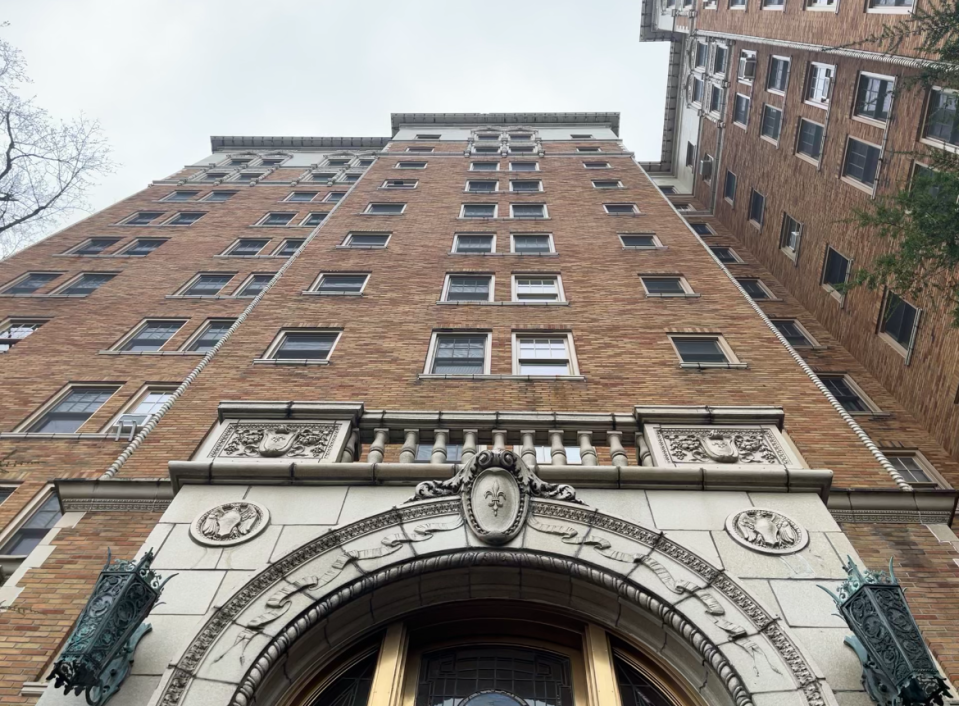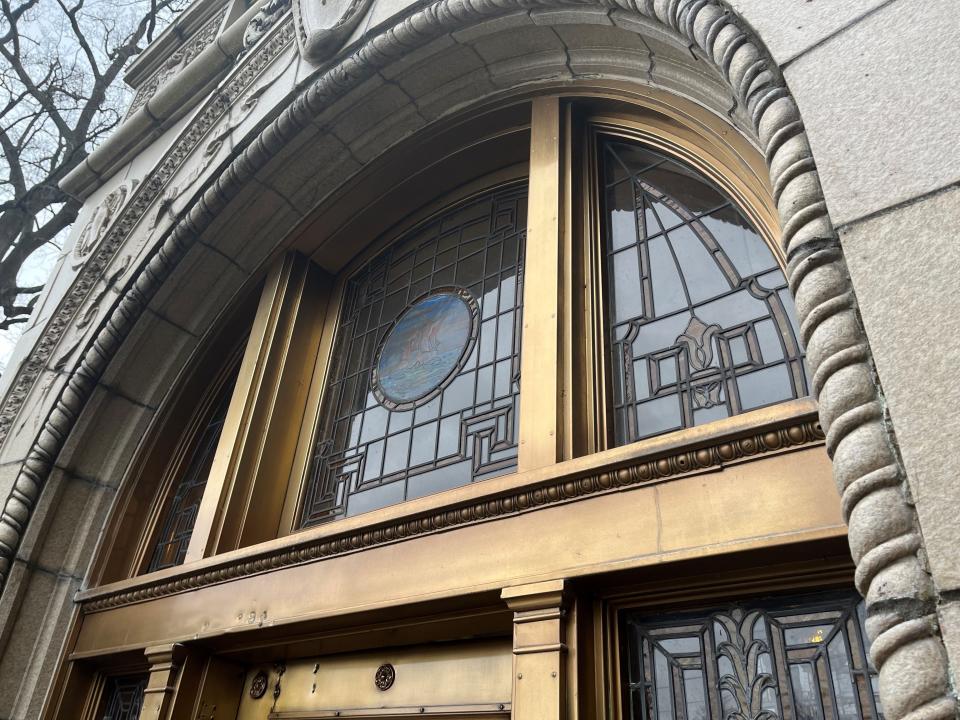Gerth: A battle in the Highlands may mean the end for Kentucky’s last manual elevator

Walking into the Commodore condominiums is like taking a step back in time.
The furniture in the dark Spanish-style lobby is the same furniture that was there the day it opened in 1929. While some of the original brass chandeliers have gone missing, the replacements look every bit as old and as the originals.
The feeling that you’re in some bygone age only intensifies when you step onto the 95-year-old, wood-paneled Otis elevator and the elevator operator asks you what floor you need.
Teresa Heintzman, who has become the building’s historian since she’s lived in the grand old lady nearly half its life, says it’s the last manually operated passenger elevator in the state.
But that may change soon, as the residents of the Commodore, in Louisville's Highlands neighborhood, vote this week on whether to get rid of the elevator and replace it with a shiny new automated one.
Once inside the elevator, the operator reaches across and closes the door, then he slides shut the brass gate like you’ve undoubtedly seen in old film noir movies.
Using the single-handle control, he then expertly drives you to your floor, careful not to overshoot, causing him to have to re-level the elevator with the floor. He then slides back the brass gate, opens the single-panel door, and wishes you a good day.

It’s a quaint routine − like asking a telephone operator to ring a friend or having your groceries checked out by an actual, living clerk at Kroger.
On Wednesday, the building’s manager will count the votes that are emailed to him, handed to him or slipped under his office door, to determine if the old, manned elevator will be replaced by a shiny new half-million dollar automated elevator − just like every other elevator in the state.
For Heintzman and Joyce Lichtenstein, who moved into the building when she returned to Louisville 16 years ago after a career in real estate in San Francisco, a decision to replace the elevator would be the wrong one.
“Why spend $500,000 when you have a piece of machinery that is unique and working?” asked Lichtenstein.
According to a 2015 story by NPR, automatic elevators were invented in 1900 but really didn’t catch on for 50 years because people were afraid of the new technology. The piece likened concerns about automated elevators then to the current uncertainty about self-driving cars.

But that all changed in 1945 when elevator operators in New York City went on strike and essentially shut down the city’s business district. After that, people began to embrace the new-fangled technology.
In 1962, the city of Louisville replaced four manual elevators in the old General Hospital with automated ones. In 1968, the state replaced the two passenger elevators in the state Capitol with automated ones.
Congress began replacing some 150 manual elevators in the U.S. Capitol and five congressional office buildings in the 1960s but kept some elevator operators (in fully automated elevators) on the payroll for decades.
For years, senators and representatives gave jobs as elevator operators to the sons and daughters of constituents and later the jobs went to people who had physical disabilities, said Jim Carroll, the Courier Journal’s former Washington Reporter.
I can't remember the last time I rode in a manual elevator before climbing aboard the one at the Commodore last week, but it may have been going to the old Stewart’s Department Store building on Fourth Street when I was a kid.
This isn’t the first time folks at the Commodore have tried to put in an automated elevator, on which all you have to do is punch a button and it will take you to one of the building’s 11 floors. A vote to do that failed about two years ago, Lichtenstein and Heintzman said.
In a response to written questions, the condo board said installing an automated elevator would save the condo association a significant amount of money.
According to the board, the homeowners association's largest annual expenditure is $190,000 it pays Ready Valet to operate the elevator and perform other services. While it would continue to employ Ready Valet, a new elevator would allow the company to cut back staff and reduce that expenditure.
That's about 40% of the total amount residents pay in homeowners association fees.
The cost has increased 24% in the last five years.
Furthermore, the board said it has become increasingly difficult to find parts for the elevator when it breaks down, leaving it out of service for up to three months in a given year. (When it breaks down, residents use the building's freight elevator.)

The average condominium owner pays $3,220 a year for the valet company to operate the elevator and perform other services. The actual cost is based on square footage of each of the 59 units, meaning those who own larger units pay more and those who own smaller units pay less.
The association says the largest expenditure is for staffing the elevator, but Dennis Conniff, the association's president, said he doesn't know how much the organization would save if it reduced the number of hours Ready Valet employees work.
Lichtenstein and Heintzman said opponents of the old elevator haven’t talked much about the cost this year, since it was a losing argument the last time there was a vote.
They said the concerns they’ve heard most from the condo’s board this time have been about being sued after the elevator didn’t level properly once about five years ago and a man tripped stepping off it. There's also a concern that it’s difficult to find parts for a 100-year-old machine.
John Gilderbloom, a professor in the University of Louisville’s Department of Urban and Public Affairs and a condo resident, called the effort to replace the elevator “a disaster” because he said the condo board hasn’t done enough research and because he believes there will be costs they haven’t thought of.
He said an insurance agent told him his homeowners’ rates will likely go up if the building isn’t staffed around the clock as it is now, and he said the condo board hasn’t gotten a recent bid to confirm the real cost of replacing the elevator.
In addition to operating the elevator, the elevator operators deliver packages to apartments, serve as defacto security guards and will even open the building’s garage if residents use a taxi cab or an Uber, sometimes saving them a walk in the rain.
Gilderbloom said many of the people who live in the building are elderly and some of them have very little contact with other people. “Just getting on an elevator and saying “hi” to someone is good for their mental health,” he said.
And Heintzman said the only time the elevator has been out for a significant period was once when the aging motor had to be rewrapped in copper. Most of the outages, she said, are caused by "Highlands squirrels" chewing through electrical lines.
Lichtenstein said the battle – as it so often does – has come down to preservationists versus those who think new is better. To counter it, she made a YouTube video of an interview she did with a former elevator repairman from Massachusetts who now inspects elevators, and distributed it to other residents.
In the video, Steve Comley, said he would expect the elevator to last another 100 years and that repairs of it should be cheaper to make on the old low-tech elevator than they would be on a new computerized car.
Finally, the condo board said it's not worried about losing the tie to history because, it says, the history isn't rooted in the elevator.
"The true historical significance of the Commodore is that it was built by three Jewish women for renting to Jews at a time when other similar buildings, such as the Dartmouth and Willow Terrace, would not rent to Jews," the board said.
We’ll find out Wednesday whether the residents decide to stick with the trusted old elevator or if they’ll swap it out for the glitz of a brand new one.
Gilderbloom said he hopes they chose the former.
“As someone who studies what makes neighborhoods work and what makes them go bad, this is bad,” he said. “It’s a real risk.”
Joseph Gerth can be reached at 502-582-4702 or by email at jgerth@courierjournal.com.
This article originally appeared on Louisville Courier Journal: Highlands condo residents battle over Kentucky's last manual elevator

